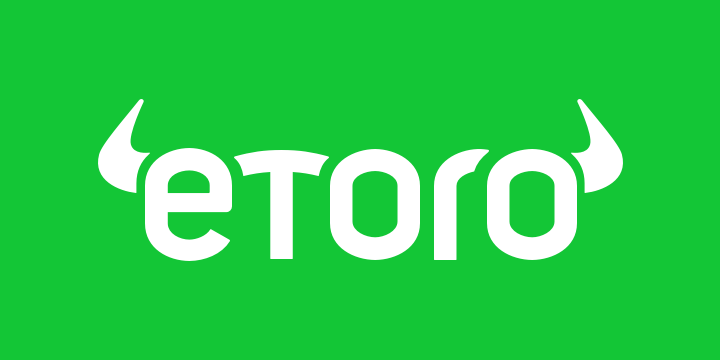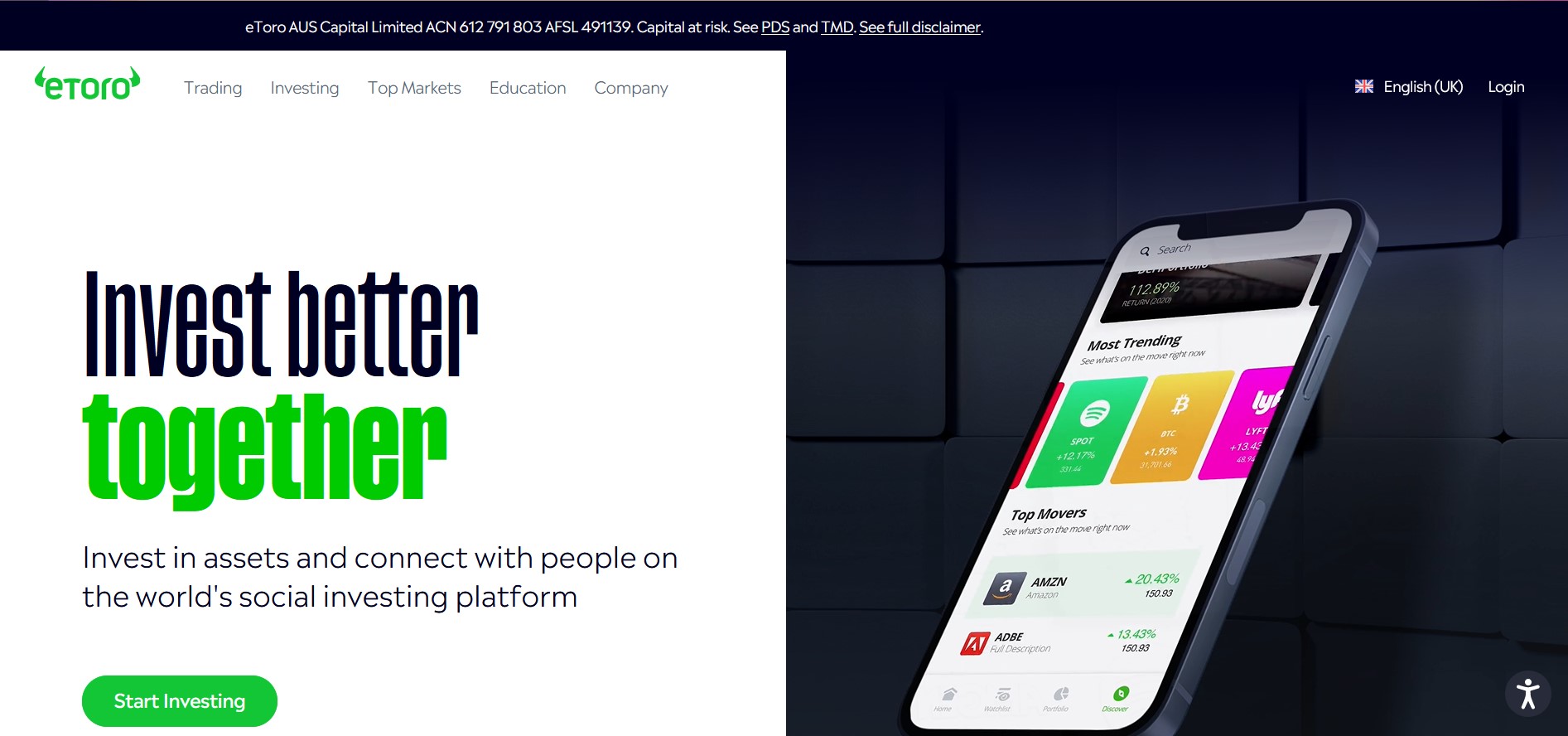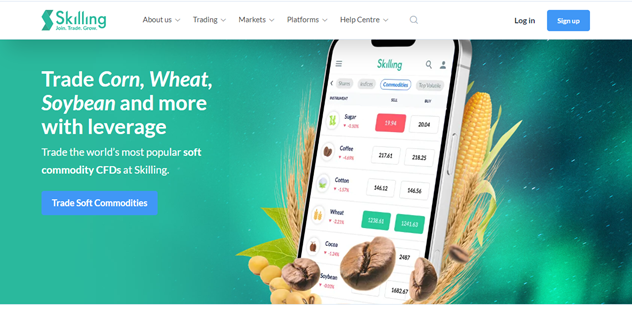How to Buy Ripple in Norway - Beginner's Guide (2025)

Buying Ripple in Norway begins with finding an exchange or broker that supports Norwegian payment methods. Some global brokers do, and this guide dives into them.
Our guide also explores how to buy Ripple in Norway on a local exchange for users who prefer NOK-native crypto pairs.
How to Buy Ripple in Norway
The easiest way to buy Ripple in Norway is to purchase it online from a crypto exchange. They make buying and selling Ripple and other cryptocurrencies easy from your smartphone, tablet or computer. Check out our recommended platforms below and follow the steps to safely buy Ripple in Norway.
1. Choose a platform
The platform you pick should work specifically in Norway. It should operate within the financial services laws and ideally be regulated by a native government agency or by one recognised by local authorities. Our top picks below all fulfil these criteria.
2. Create and fund your account
Input your name, contact information, and other details in the sign-up form usually displayed after clicking a Sign Up button on the home page. To fund your account, you must pass KYC by submitting identity and address documents like an ID and a utility bill.
3. Buy Ripple Norway
Navigate to your account’s explore or discover page and search for Ripple. Depending on the platform, you may see tickers like XRP/AUD or XRP-USDT. Purchase Ripple directly using a funding method of your choice or with your account balance.
Where to Buy Ripple in Norway?
1. eToro – Overall Best Platform to Buy Ripple in Norway
eToro is a social investing platform that allows its users to easily buy cryptocurrency, stocks, and commodities. The exchange has over 25 million users forming a community of investors and traders.
eToro stands out from other exchanges with social investing features. It leverages its huge user base by allowing users to copy others’ trades. Newbies can copy the trades of successful investors and increase their chances of making a profit while learning.
Its social, copy trading and thematic investing features also offer investment options that stand out from competitors.
The platform offers 70+ cryptocurrencies, including Ripple, to users. Search for Ripple in the Discover section and purchase it directly with fiat.
Deposits are free on eToro, but payment providers may charge a transaction fee. The minimum initial deposit is 10 USD (105.77 NOK), and subsequent deposits must be at least 50 USD (528.85 NOK) or 500 USD (5288.53 NOK) when using a credit card at the time of writing.
Direct conversions from fiat to crypto cost 1% of the transaction value. Deposit methods include credit cards, PayPal, Poli, bank transfer, Skrill, and Neteller.
You can only use USD, GBP, and EUR with Skrill, Neteller, and bank transfers, so transactions made in native Norwegian Krone are subject to a conversion fee.
With eToro, users can either buy Ripple or Ripple CFDs to take advantage of price movement.
eToro is regulated in Europe by the Cyprus Securities Exchange Commission (CySEC).
Read our full eToro review here.
Pros
-
Well regulated
-
Low minimum deposit ($10)
-
Has a mobile app
-
Social investing feature allows you to copy other’s trades
Cons
-
Limited crypto selection
-
Norway users pay conversion fees
2. Skilling – Best platform for Trading Crypto with Leverage
Skilling provides a way for traders to profit from Bitcoin’s price movement without needing to buy it. The broker offers access to crypto contracts for differences (CFDs) that track crypto price movements.
These CFDs allow traders to use leverage facilities to potentially magnify their profits from crypto when it rises and falls. Skilling offers more than 55 crypto CFDs at a spread of 0.2% for Bitcoin.
The platform is regulated by the Financial Conduct Authority (FCA) and the Cyprus Securities Exchange Commission (CySEC). It also implements industry-standard security protocols to safeguard user funds.
Deposits made through bank transfers, credit card deposits, FasaPay, WebMoney, PayRetailers, and UnionPay are free for deposits and withdrawals, while those made through Skrill and Neteller cost 2.9%.
Users can access the trading terminal to place buy and sell orders and access a leverage facility of 1:50, allowing them to trade 50x more than their capital pending a minimum deposit of $100.
Read our full Skilling review here.
Pros
-
Highly secure and well regulated
-
Live chat, email, and phone support
-
1:50 leverage facility
-
Free deposits and withdrawals for most payment methods
Cons
-
Minimum deposit higher than others
3. Capital.com – Best Platform for Trading Crypto CFDs in Norway
Capital.com is a global broker in the currency exchange market regulated/licensed by the UK Financial Conduct Authority (FCA), the Financial Services Authority of Seychelles (FSA), the Australian Securities and Exchange Commission (ASIC), and the Cyprus Security Exchange Commission (CySEC).
Its platform allows users to trade CFDs across various financial markets, including cryptocurrency and is ideal for traders who want a cheap way to profit from Ripple’s price movements. The broker offers over 456 cryptocurrency contracts for most major fiat currencies and crypto crosses.
Ripple spreads change with market volatility, however, at the time of writing, it was 60 pips, i.e. $600 per 100,000 units (lot), $60 per 10,000 units (mini lot), and $6 per 1,000 units (micro lot).
To start trading, users must deposit a minimum of $20 through a bank transfer, credit card payment, PayPal, or wire transfer, depending on their location.
Capital.com covers all deposit and withdrawal fees. Nevertheless, payment service providers may charge fees, especially when using credit cards.
Read our full Capital.com review here.
Pros
-
Commission-free trading
-
Highly regulated
-
Low minimum deposit ($20)
-
Multiple payment channels available
Cons
-
Not available to US clients
4. Firi – Best Place to Buy Ripple in Norway with Native Currency Support

Firi is a Nordic crypto exchange that offers services primarily to Norwegians and countries in the Nordic region. It is registered by the Financial Supervisory Authority of Norway (FSAN) and is the largest in the region with over 130,000 users.
The exchange supports over 9 cryptocurrencies, including major ones like Bitcoin and Ethereum, paired natively with the Norwegian Krone (NOK).
Users can deposit funds into their accounts using local bank transfers, Vipps (a Norwegian mobile payment application), credit cards, and Apple Pay. Deposit fees include 3.9% for credit cards, Vipps, and Apple Pay subject to a minimum amount of 100 NOK, while bank transfers are free but subject to a minimum of 11 NOK.
Withdrawals can only be made to a bank account and cost 65 NOK subject to a minimum withdrawable amount of 500 NOK.
Trading fees cost 0.7% per trade while direct crypto purchases using credit cards, Apple Pay, or Vipps cost 3.9% in addition to the regular trading fee.
Pros
-
NOK-native crypto pairs
-
Clean and easy-to-use interface
-
Straightforward verification process
-
Transparent pricing structure
Cons
-
High deposit and withdrawal costs
-
Expensive trade cost
How to Buy Ripple in Norway - Tutorial
Our guide focuses on eToro as it is our overall best place to buy Ripple in Norway. However, these steps can be applied to other crypto exchanges in this guide.
1. Open an account
Click on the Start Investing button on the homepage to get started. Fill in your details on the sign-up form and create an account. You can also download the mobile app from the Play Store/App Store and do the same.

2. Verify your account
You’ll receive an email verification link when you create an account. Click on it to start the process. Complete your profile by submitting details like your date of birth and a passport photo, after which you submit KYC documents. These documents include proof of ID (National ID or driving licence) and proof of residence (utility bill).

3. Make a deposit
Once your account has been verified, click on Deposit Funds on the left pane of your dashboard. The deposit options available will be displayed. Choose one and set the amount you’d like to deposit. You can deposit Norway dollars directly using credit cards, PayPal, and Poli.

4. Buy Ripple Norway
Search for Ripple in the Discover tab. An interface like the one below should load. You can buy immediately at market price or set a price you’d like to buy at.

Is Ripple a Good Investment?
We cannot say outright whether or not Ripple is a good investment. However, we can give pointers to help you arrive at that decision yourself.
Decentralisation
Firstly, Ripple is decentralised. It does not depend on governments to legitimise it or companies to run and maintain its blockchain infrastructure. Transactions are free from many of the controls and drawbacks of traditional finance networks like high fees for international transfers.
As the digital age progresses, more components of our lives will be moved to the digital space. Crypto technology mathematically safeguards digital assets and places ownership with users, making it crucial for a free digital future.
Liquidity
Cryptos are generally very liquid and portable assets. They can be bought on one crypto exchange, moved to another exchange in a different country and sold in a matter of minutes, creating a way to move wealth easily.
High Return Potential
Ripple has a track record of delivering high returns on investment either due to its volatility or more fundamental reasons like growing adoption and institutional interest. Combining this with the fact that blockchain technology is still in its early stages, the growth (and profit) potential is significant.
Store of Value
Crypto can be used as a long-term store of value, especially for those with deflationary mechanics, like Ripple. Because supply is capped, the value of deflationary coins is projected to grow over time, provided demand remains constant. This makes the digital currency a possible long-term alternative to gold.
Portfolio Diversification Option
Ripple is a digital asset that can be used as an asset class when building a diversified portfolio. Its equity potential (the ability to increase in value) makes it worthy of consideration for modern portfolios.
Risks of Buying Ripple
There are downsides to buying Ripple. The first is its volatility. Crypto is known to swing wildly, losing significant portions of its value within a few weeks and often leaving investors reeling from losses.
There is also a risk of rug-pulls, blockchain attacks, and wallet hacks. These are technological risks that involve an attacker hacking a crypto’s blockchain network or your wallet and usually end with funds getting stolen.
Finally, crypto at large is still the target of legal crackdowns and harsh regulatory policies that could stunt its growth and adoption rate.
What Payment Methods Can I Use to Buy Ripple in Norway?
Ideal payment methods should support the Norwegian Krone natively and while not all platforms allow deposits in Norwegian Krones, these are the methods you can easily use to buy Ripple in Norway.
Credit/Debit cards
Credit or debit cards are probably the most accepted payment method across platforms but also the most expensive. eToro doesn’t charge fees but those of Binance and Coinbase are 1.8% and 2.49% respectively. On other platforms, fees generally range between 1% – 3%.
Bank Transfers
Local transfers through a Norwegian bank account are available for free. They are also free on eToro but may cost extra due to conversion.
Ways to Invest in Ripple in Norway
There are several ways to gain exposure to Ripple and profit from its price movements in Norway. This section dives into them and how they relate to Ripple.
Buy and Hold Ripple
The buy-and-hold strategy involves buying Ripple and holding it for a long time, usually as long as you can. This strategy is popular in the industry as it has proven to be effective over long periods, usually years.
This strategy can be varied using a buying technique called dollar cost averaging (DCA) where you buy a set dollar amount of Ripple at fixed intervals regardless of price.
Trade Ripple
This strategy profits from Ripple’s volatility. Trading XRP involves relatively short-term buying and selling, usually from as little as a day to as long as a year. Positions held for longer are often classified as investments.
Trading creates an opportunity to explore other financial derivatives like futures, options, and CFDs that give traders exposure to XRP’s price movement without the need to buy the coin. It also allows for leverage facilities that can magnify traders’ wins (or losses).
Choosing a Ripple Wallet in Norway
Wallets are important because they store your valuable cryptos, so choosing the right one is crucial. Crypto wallets are generally split into hardware and software wallets. Hardware wallets store cryptos offline on a device while software wallets store cryptos online and are always connected to the internet.
Software Wallets
-
Web wallet: These wallets come as either browser extensions or web apps that store your private keys in your browser. Web app variants are accessible through any browser, however, the extension variant must be installed on a new browser and a seed phrase must be used to recover your wallet. eToro, Binance, and Coinbase provide free web wallets that store Ripple.
-
Mobile wallet: This wallet is a mobile app downloadable from the Play/App stores or the internet. Binance’s mobile wallet is called Trust Wallet and it supports Ripple.
-
Desktop wallet: This is an application that runs on your computer and stores your private keys on your hard drive. There are several desktop wallets available depending on the level of control you want and your familiarity with blockchain technology. However, a good option for beginners is the Electrum wallet available for Windows, Mac, and Linux PCs.
Physical and Hardware Wallets
-
Hardware wallet: A hardware wallet is a physical device that stores private keys offline. They are much harder to hack and are currently the safest storage option. Hardware wallets that support Ripple include Trezor and Ledger.
-
Paper wallet: A paper wallet is a piece of paper with public and private keys printed on them. While they are a good way to keep your private key offline, they are not recommended as you may lose the paper or the ink could wear off with age. Paper wallets have gone out of fashion since the advent of hardware wallets.
Wallet Combinations
You can combine two or more wallets for added security or a better user experience. For example, you can use a hardware wallet like Ledger with a web wallet extension to buy coins on a decentralised exchange and immediately send them to your hardware wallet.
Should I Buy Ripple Now? - Things to Consider Before Buying Ripple in Norway
Whether or not you should buy Ripple now depends on the state of the economy, your investment goals, your risk tolerance, and the cost of investments. Consider these factors when making a decision.
Ripple Fees
The total cost of buying Ripple is made up of network fees, exchange fees, and deposit fees across exchanges.
The network fee is the charge the blockchain takes for processing transactions. This fee usually goes to computers that help secure and run the network. It could rise and fall based on the volume of transactions for certain blockchains, however, newer networks are built to accommodate high volumes without significant changes to transaction fees.
Exchange fees are charged for conversion, trading, or other related services. Some platforms are cheaper than others in certain regards. For example, conversions on Binance are cheaper than eToro at 0.1% per trade compared to 1% charged by the latter.
However, eToro trumps Binance when it comes to deposits as it supports free deposits while Binance charges $1 for bank transfers and 1.8% for credit card payments.
Aggregate the costs of using various components of an exchange to obtain a holistic view of the cost of using that exchange, then compare it with others to find a cheap option.
Ripple Price
Ripple’s price is known to change rapidly and swing wide i.e. change quickly and by a considerable amount. For traders, this is good news as it presents opportunities to profit from this volatility.
Long-term investors, on the other hand, may not be too bothered by short-term fluctuations as price historicals show an overall uptrend with pocket downtrend periods. In the long-term investment case, a simple buy-and-hold strategy, or one combined with a DCA, may prove effective.
Buying Ripple in Norway Safely
Security is of the utmost concern when dealing with cryptocurrencies and the exchanges that sell them. The first thing you should observe is the exchange’s regulatory status. The ideal situation is when the exchange is registered in its country of operation.
However, this is not always the case. Crypto exchanges sometimes offer services to users in certain geographical regions using entities registered in a nearby jurisdiction or in a jurisdiction where regulations allow them to onboard users from other countries.
In this case, ensure the regulatory agency is transparent and enforces industry-standard security and legal practices.
Buying Ripple in Norway Anonymously
Buying Ripple anonymously is not as easy as some may assume due to widespread regulation on all major exchanges and platforms. The key to remaining anonymous is to refrain from providing personally identifiable data. Platforms do this to varying degrees.
Crypto ATMs are a way to buy crypto anonymously. They only require the money with which you buy crypto and the wallet address you want to send it. Currently, most ATMs are limited to Bitcoin, Ethereum, and Litecoin, but more are popping up with support for more coins.
Another method is using prepaid cards to purchase cryptos on peer-to-peer markets. You send the code to the counterparty, and they send your crypto. Visa offers prepaid cards, but you’ll need to ensure you won’t have to give up personal details to obtain them.
Is Buying Ripple Legal in Norway?
Yes, buying Ripple in Norway is legal. The Norwegian government views cryptocurrency as an asset that can be acquired and disposed of. However, there are no clear-cut laws specifically guiding cryptos.
However, crypto exchanges are required to register with the Financial Supervisory Authority of Norway (FSAN) and adhere to European Anti-Monetary Laundering regulations directive EU 2018/843 – the fifth Anti-Money Laundering Directive.
What Banks Let You Buy Ripple in Norway?
Looking for which banks support Ripple? These banks do.
Skandiabanken, one of Norway’s largest online banks, allows its clients to manage their crypto portfolio on Coinbase through the bank’s interface.
DBN is Norway’s largest banking and finance group. It allows users to buy Ripple through its payment service, Vipps.
Handelsbanken is a Swedish bank with Norwegian operations. It allows users to purchase cryptocurrency via bank transfers for local exchanges and credit cards.
Is Ripple Taxable in Norway?
Yes. The Norwegian Tax Administration is responsible for the enforcement of all tax laws within the nation. According to their website, Ripple is considered an asset and is subject to Capital Property Income tax.
Gains or losses for the purchase and sale of Ripple must be reported in your yearly tax statement, including crypto that is mined or earned through staking. Profits are taxed to the same degree that losses are deducted i.e. if you make a profit, you pay taxes. But if you make a loss, you get a tax-deductible equal to the same percentage you would have been taxed if you made a profit.
Final Thoughts
Norwegian citizens and residents have several options to buy Ripple, and we believe that eToro is the best because of its emphasis on regulations, vibrant ecosystem, and cheap funding methods. Users can buy Ripple recurrently without incurring more deposit costs.
Furthermore, the platform offers several purchase methods. Users can buy Ripple with credit cards, PayPal, Skrill, Neteller, and bank transfers. However, PayPal, Skrill, and Neteller may charge deposit fees.
The minimum required deposit amount is $10, placing the barrier of entry low enough for anyone to try their hands on Ripple before diving in, while withdrawal fees are $5 for any amount withdrawn.
More Cryptocurrency Guides in Norway
Check out more of our popular crypto guides for Norway below.
Methodology - How We Picked the Best Platforms to Buy Ripple in Norway
We decided on the best platforms by first testing them individually. Our criteria for assessment include fees, deposit and withdrawal methods, reputation, credibility, security, ease of use, trading features, coin selection, and competitive edge.
The platforms listed on this page are ones that we found to be the best at the features we listed them under e.g. cheapest way to buy Ripple. All platforms have a track record of providing value to users.
We also placed an onus on security and credibility. These platforms have millions of users and employ some of the highest security measures in the industry.
Finally, we considered fees and limits. These platforms have various fees and deposit/withdrawal limits, however, they are all within reasonable limits.
To learn more about how we test and choose platforms, visit our why trust us and how we test pages.
Frequently Asked Questions
Ripple News

Norwegian Gambling Authority steps up oversight of online casinos
4 October 2023 Norway’s online casino market faces increased scrutiny Lotteritilsynet oversees banks to enforce a ban on transactions with…



